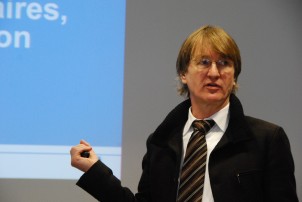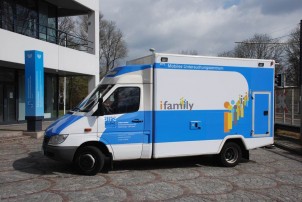Welcome …
Please use Chrome or Firefox for best interaction with this site.
IDEFICS/I.Family follow-up study – lifestyle and health
From 2007 to 2016 more than 16,000 participants from 9 European countries participated in the IDEFICS/I.Family study. Families contributed to these large studies and provided important insights for health research. We invited these children once more to take part in the follow-up study in 2020-2022. The aim of the study was to find out whether their lifestyle changed in the past years and if the lifestyle might have had an impact on their well-being, health and risk of disease. From our previous studies we already knew that lifestyle habits e.g. physical activity or dietary behaviour influence children’s and adolescent’s health. By then the participants of the IDEFICS/ I.Family studies reached adolescence or adulthood, entering in a new phase of life.
For many young people, this means moving to another school or starting an apprenticeship. It is also a time when young people develop their own lifestyle that can affect their future health.
We wanted to further explore the health and lifestyle of young people who participated in the IDEFICS/I.Family studies. What had changed in recent years? How did these young people live? How healthy were they? The answers would help us to understand how lifestyle changes from childhood to young adulthood affect health and how to prevent certain diseases.
What did participation include?
The study consisted of a set of questions on eating and sleeping behavior, physical activity, well-being, media use, health condition and medication. We also asked about height and weight. Answering the questionnaire took about 45 minutes and participants completed it online (via the study website) or as a paper version.
What were the benefits in participating?
Participants remained part of our large international IDEFICS/ I.Family community and we kept them informed about the most recent IDEFICS/I.Family research findings. Upon request we provided hints on where they stood with personal habits and where improvement were possible.
But most of all, participants made an important contribution to improving the health of young people and developing specific measures to prevent diseases.
Participation in this study was voluntary. There were no disadvantages for the invited individuals or their family if they didn’t participate. Decision to participate could be changed at any time without having to give a reason for this.
For more information please visit the website of the follow-up study
I.Family Final Conference9 February 2017 BrusselsHere you can access all materials prepared for and delivered at our final conference. Thank you to all our speakers, chairs, contributors and delegates who made this event such a success!
Also see – Project Points of View Article Archive |
![]() This project has received funding from the European Union’s Seventh Framework Programme for research, technological development and demonstration under grant agreement no 266044.
This project has received funding from the European Union’s Seventh Framework Programme for research, technological development and demonstration under grant agreement no 266044.
Last modified: July 1, 2024







